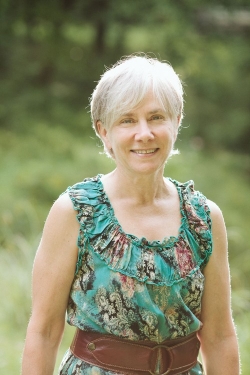Associate professor and flutist Liselyn Adams is set to perform with Concordia alumni Tariq Harb, Sarah Albu and Serge Agoshkov at the Oscar Peterson Concert Hall on October 24 at 8 p.m.
We caught up with her to discuss the Crow and Nightingale concert, her work as a performer and the notion of “ensemble as composer”.
+++
This performance continues a long and rather freewheeling exploration of chaos in music, dating back to a series of concerts based on the myths of Dionysus and Apollo, as they represent chaos and order, wind instruments and strings, darkness and light. Apollo's gift to humans of a lyre was intended to provide a means of communication with the gods. He hoped for reason, light, and clarity. Dionysus's flute blew of unreason, sound, and wildness. Composers and performers have long enjoyed both, with no fear. Music can take us safely through all aspects of our worlds, and this concert explores other myths and stories and gives us reason to enjoy even the darkness.
"Crow" by Dusan Bogdanovic is the centrepiece of the concert. The poetry is by Ted Hughes – from his "Life and Songs of Crow" – a work from the late 1960s that followed on the suicide of his former wife, Sylvia Plath. Crow puts together life and death, and screechingly shows us that communication among humans and with the gods is dark, cocky, and unstoppable. Three of the Department of Music’s alumni – Tariq Harb, Sarah Albu and Serge Agoshkov – who are strong emerging performers, join me in this work and others, showing themselves as soloists and chamber musicians we can be proud of.
I have performed music from many times, and remain fascinated with the way we grapple with great feelings and motion through music. The smallest gesture, routed through musicians who are somehow invisibly connected, can go places our words do not easily take us. The research of performers is deeply physical, but is still a communication whether or not there are words involved. The community of performing musicians is a community of research, who, like composers, do not necessarily disseminate through journals and lectures, but through the music they create and re-create, and through their teaching.
In the past several years, I have become involved in collaborative composition where the ensemble is the composer, and each member draws on improvisation to create a work that can be then somewhat stabilized and reproduced. It can go beyond the musicians, as with the production of Frankenstein's Ghosts that was created by my ensemble (Blue Rider Ensemble) together with a team of video and sound artists, actors, dancers, and a writer and choreographer. The ideas grew out of research into ethics, psychology, and literature into Mary Shelley's Frankenstein, and the final production was an example of what a large collaborative team can create. This was an extension of what I like to call the "chamber music model" of co-creation. Everyone is a leader and everyone a follower, and the communication is constant and complex, instantaneous while the group is playing and moving together.
It is exciting working with students of performance, both on composed works and on improvisation-based pieces. Over the past few years I have had the pleasure of teaching chamber ensembles, contemporary music ensembles, and intensive summer institutes. Guiding students through the intricacies of deciphering, deciding, and finally committing to a public performance is always exciting. Increasingly we are able to combine students from jazz, electroacoustics and music performance to create together – everything from simple exercises to fully worked out collaborative compositions.
In the Summer 2016 term, the Department of Music will be offering a course supported through the Provost's Curriculum Innovation program for performance of contemporary music. Students will work with emerging composers, create their own works, and have a chance to learn about the entrepreneurial side of becoming a performing musician today. I am looking forward to this summer intensive.
Related
- Crow and Nightingale concert, October 24
- Liselyn Adams' profile on Explore Concordia
 Associate professor Liselyn Adams
Associate professor Liselyn Adams